Tuesday, June 25, 2024
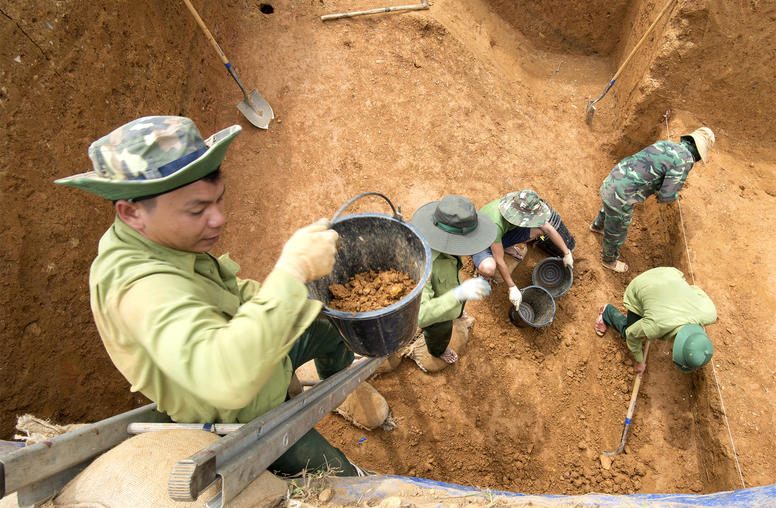
Time is Running Out to Account for Vietnamese War Dead
As the 50th anniversary of the end of the Vietnam War approaches in 2025, Vietnamese families continue to search for the fallen. Finding these war remains not only helps provide closure, but is critical to furthering postwar reconciliation, addressing the war’s legacies and advancing the story of U.S.-Vietnam relations as an example of the practicality and possibility of peace after war.

Thời gian không còn nhiều cho nỗ lực tìm kiếm hài cốt sau chiến tranh
Trong khi Chiến tranh Việt Nam đã lùi xa gần 50 năm (1975-2025), các gia đình Việt vẫn tiếp tục khắc khoải tìm kiếm hài cốt thân nhân nằm xuống trong cuộc chiến. Nỗ lực tìm kiếm này không chỉ giúp khép lại quá khứ, mà còn đóng vai trò quan trọng trong thúc đẩy tiến trình hòa giải, khắc phục hậu quả chiến tranh, và đưa câu chuyện quan hệ Hoa Kỳ-Việt Nam trở thành một điển hình về tính thực tiễn và khả năng xây dựng hòa bình thời hậu chiến. Tuy nhiên, năm tháng đi qua và tạo thêm nhiều thách thức, việc tìm kiếm hài cốt ngày càng trở nên khó khăn.
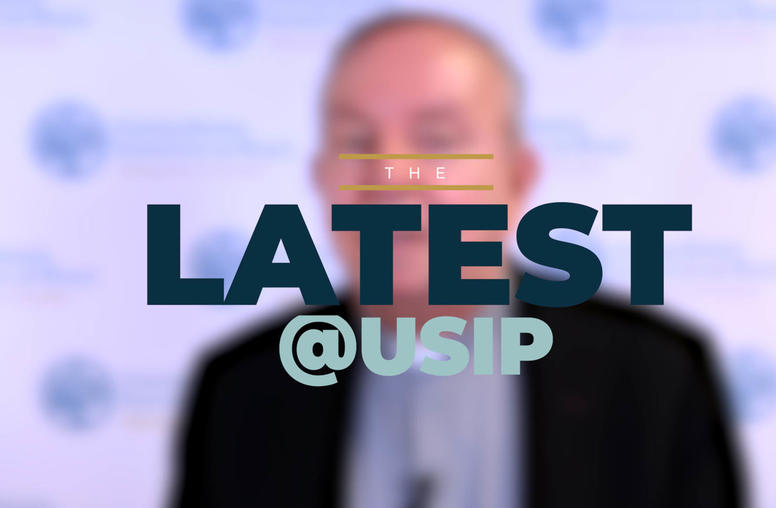
The Latest @ USIP: Resurgent Efforts in Colombia’s Peace Process
Newly elected Colombian President Gustavo Petro has made “total peace” a cornerstone of his agenda, looking to jump-start implementation of the 2016 FARC peace agreement and establish negotiations with the ELN and various other armed groups. Monsignor Hector Fabio Henao, who serves as a delegate of the Episcopal Conference of Colombia for relations between the Catholic Church and the Colombian government, discusses how the Church is working at the grassroots level to address the humanitarian situation in conflict-affected areas and efforts to build consensus among civil society and government officials regarding next steps in the peace process.

The Latest @ USIP: What’s at Stake in Nigeria’s Elections?
Mahmood Yakubu, the chairman of Nigeria’s Independent National Electoral Commission, discusses how his team is working to ensure free, fair and credible elections — as well as why the support of young people and political leaders is crucial for maintaining the longest period of uninterrupted democratic governance in the Nigeria’s history.

Ask the Experts: What Drives Libya’s Fragility?
Libya has been trapped in cycles of violence and political instability since the 2011 revolution. Competing factions within Libya’s political, business and military elite have spent the last decade alternating between violent conflict and ineffective power-sharing agreements. Meanwhile, foreign powers have interfered in pursuit of their own geopolitical agendas, undermining international mediation efforts by the United Nations and others. USIP’s Andrew Cheatham spoke with two Libya experts to discuss what’s behind the country’s protracted fragility crisis and how Libya can move toward peace and democratic governance.
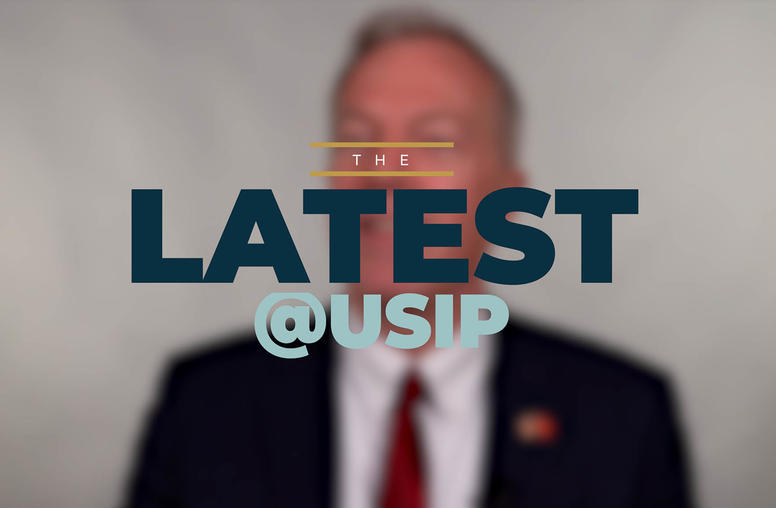
The Latest @ USIP: War Legacies and Peace in Vietnam, Laos and Cambodia
The process of postwar reconciliation between the United States, Vietnam, Laos and Cambodia is one of the most remarkable stories of the 21st century. The legacies of U.S. military involvement in Southeast Asia, once a major obstacle to normal relations, have gradually become the basis for a closer partnership. USIP recently brought together diplomats, advocates and authors to draw lessons from U.S. engagement in Southeast Asia and explore how Vietnamese, Laotians and Cambodians are healing from wartime suffering and building a future based on trust and shared interests.
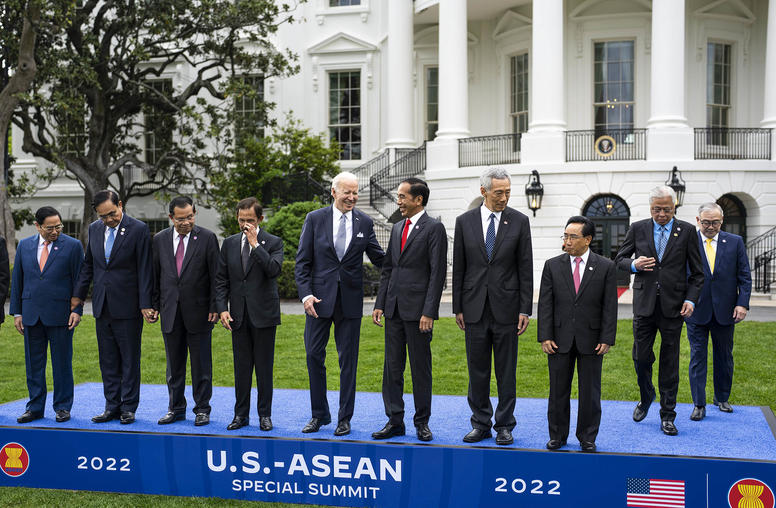
How Can Peacebuilding Organizations Help Regional Institutions?
This year’s U.N. General Assembly came amid a host of interconnected global challenges, like the war in Ukraine, global food insecurity and climate change. Indeed, the theme of the General Assembly was to find “transformative solutions to interlocking challenges.” As the world’s premier multilateral body, the United Nations’ recognition of the interconnected nature of today’s vexing challenges is vital to building consensus and devising solutions. But regional multilateral bodies — like the African Union (AU) or the Association of Southeast Asian Nations (ASEAN) — also have a key role to play. Despite regional organizations’ shortcomings, their member countries are bound together by geography and similar challenges and therefore more likely to find more common ground than the 193 countries in the United Nations.

Ask the Experts: What Drives Haiti’s Fragility?
While governance and economic issues have long plagued the country, Haiti’s instability has only accelerated since the assassination of President Jovenel Moïse in July 2021. Today, Haiti is experiencing a full-scale humanitarian crisis, with nearly half the population not having enough to eat. The U.N. has called for rapid action, and the United States has included Haiti in its list of priority countries under the Global Fragility Act. USIP’s Andrew Cheatham spoke with several Haiti experts about the structural and security challenges Haiti faces and possible solutions going forward.
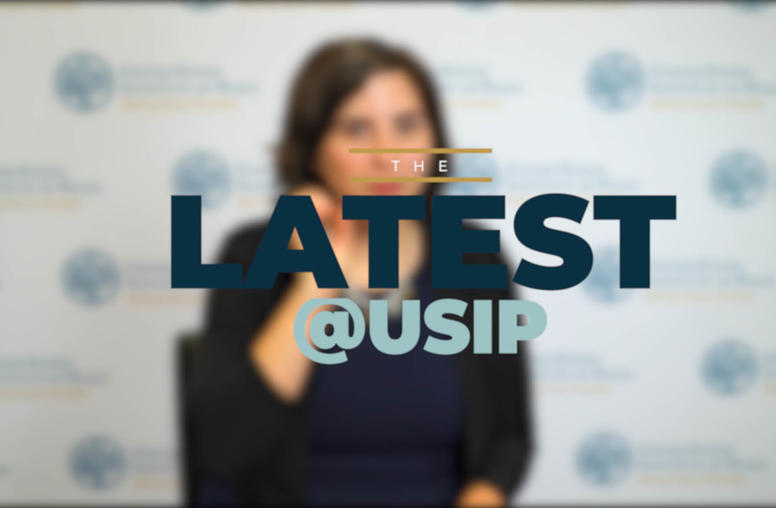
The Latest @ USIP: Promoting Women, Peace and Security
The Women, Peace and Security (WPS) agenda promotes women’s equal and meaningful participation in peace processes, peacebuilding and security. The WPS agenda has significantly advanced since the 2000 passage of U.N. Security Council Resolution 1325. In 2011, the United States instituted a national action plan on WPS, making it a national policy priority. USIP recently hosted a consultation with the Department of Defense and civil society leaders on how to further boost the WPS agenda and the U.S. national action plan.
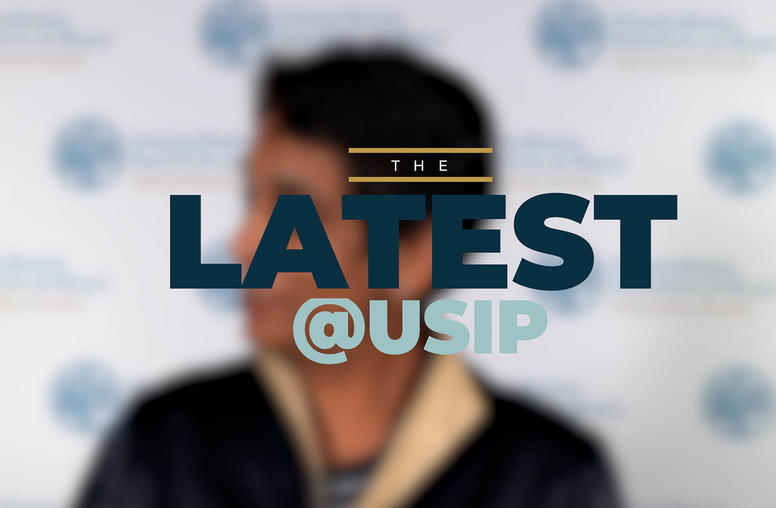
The Latest @ USIP: Global Shocks Are Setting Development Back — What Can Be Done?
Development efforts in the Asia-Pacific region have been severely hampered by global shocks — namely, the COVID-19 pandemic and climate-related catastrophes — in recent years. Indeed, in the region, human development gains have regressed to 2016 levels, which means it will be a major struggle for Asia-Pacific countries to reach the U.N.’s Sustainable Development Goals. Russia’s war on Ukraine has exacerbated these challenges. Kanni Wignaraja, assistant secretary-general at the U.N. and director of the U.N. Development Program’s regional bureau for Asia and the Pacific, discusses the impact of the compounding crises of COVID-19, climate shocks and the Ukraine conflict on development gains in the Asia-Pacific region; the long-term costs of delayed development; and creative, flexible approaches to addressing these challenges.
